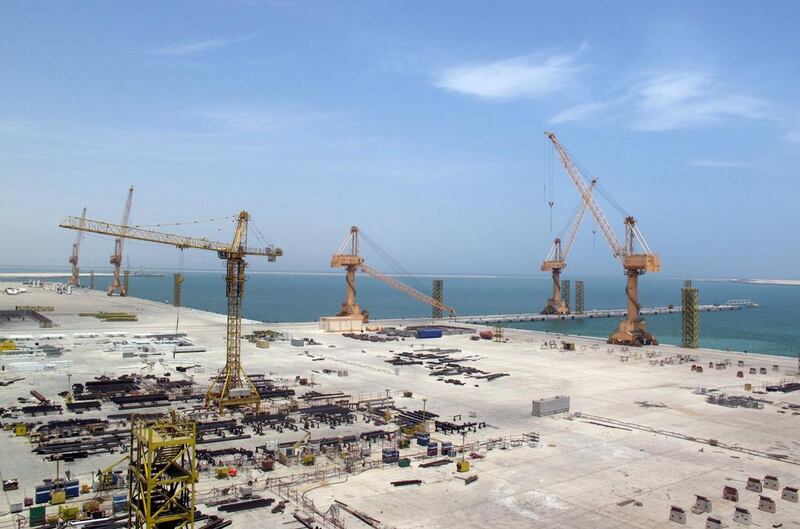A ground-breaking ceremony to mark the start of infrastructure work at the US$10.7 billion Sino-Oman Industrial City at the city of Duqm will take place next week, paving the way for deals for the first projects at the site.
Ningxia China-Arab Wanfang, the company set up to develop the city, will start work on the project following the ceremony on April 19.
Jalal Al Lawati, a promotion manager for the Duqm Special Economic Zone Authority (Sezad), said that investors from Ningxia, in north-central China, are likely to attend and that a number of deals will follow.
“They told us that 10 investors will be there. However, there is no confirmation on that yet,” Mr Al Lawati said. He said the investors are likely to sign deals within the next few weeks to build new industrial projects.
“It will be within the coming month, but I don’t know when exactly.”
An initial 50-year agreement between Oman’s government and public and private companies from the Ningxia administrative region was signed last May. It is expected to lead to 35 projects, including construction of an oil refinery, a petrochemicals complex, a concrete plant, a steel smelter, a glass factory and an aluminium plant, among others.
Some of the early schemes that are expected to receive approval will include a methanol manufacturing plant, a solar power project, a pipe factory, a power plant and a potential tourism project.
Sezad signed a 107.3 million Omani rial (Dh1bn) contract with the joint venture of Turkish contracting firm Serka and Portugal’s MSF for the development of the second major infrastructure package (IP2) at the Port of Duqm in November. In February, it also signed infrastructure deals worth 84.7m rials for roads, stormwater drainage and dams throughout the city.
“For us, IP2 is very, very important,” said Mr Al Lawati, pointing out that this paved the way for commercial terminals at the port. “This is a game-changer for the entire Duqm [city].”
The work involves the construction of four container terminals – two of which will be about 1,600 metres long and 350 metres wide. It is scheduled to take 30 months to complete.
Mr Al Lawati said that Sezad is continuing to target “anchor” projects in fields such as oil and gas, mining or manufacturing that will help to drive the development of Duqm.
“We believe these anchor projects will drive investment downstream, it will drive investment sideways and it will drive a lot of project opportunities later on.”
A report published last week by BMI Research on China’s One Belt, One Road (Obor) initiative stated that the Middle East and North Africa region “will play a crucial role” in China’s delivery of its plans – especially for maritime trade routes.
“The [Obor] initiative will be specific in its targeting of port projects and associated infrastructure across the Middle East and Africa region as China looks to develop markets along the maritime route,” the BMI Research report said.
“China’s willingness to finance and build infrastructure aligns with several governments’ goals of economic diversification and becoming hubs for tourism and trade.”
mfahy@thenational.ae
Follow The National's Business section on Twitter






